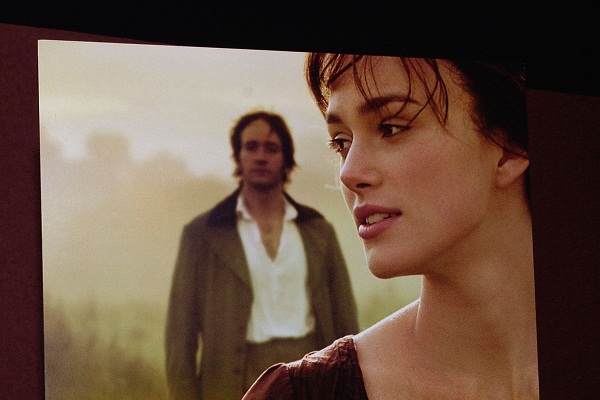In her Times column on Monday (£), Libby Purves valiantly attempted to fit together two things that were obviously on her mind. Discussing Pride and Prejudice, which is 200 years old this week, in relation to the modern permutations of marriage was sure to be a delicate operation.
Purves argued that the book’s appeal lies in both its wit and the intellectual and emotional foreplay between Elizabeth and Darcy. What might seem ‘subversive’ for modern sensibilities, Purves suggests, is the fluttering of Elizabeth’s heart when she sees the size of Darcy’s pile. Nowadays, she argues, marriage is about ‘love’, of course. It doesn’t matter about class, wealth or gender.
That seems naive. It is precisely Elizabeth Bennet’s feeling that ‘to be mistress of Pemberley might be something!’ which makes Pride and Prejudice relevant.
Austen satirises marriage by boiling it down to its essential purposes; first, as a socially acceptable vehicle for cohabitation, sex, ensuring genetic lineage and second, as a means to secure the futures of daughters and their offspring. Mrs Bennet is well aware of this; Elizabeth has internalised it. Austen knows that marriage is a legal contract about the division of assets in the event of death. It was also the only way women could respectably earn their keep.
But what about our generation? Given that we’re allowed to cohabit, have lots of sex, spawn lots of children and fall in love without a social modesty jacket, marriage might seem solely symbolic. This sense may increase. Relationships do not entail the same hierarchy of responsibilities; the Wickhams of this world might now be organising the school run. Women, despite taking time out from the career ladder for babies, will potentially start earning more than their partners.
Unless there are changes, however, the need for support while childrearing means that marriage will probably continue to be more attractive to many women; and, given that marriage is still a legal contract about the division of assets, it would be naive to suggest that economic ramifications don’t enter one’s mind when embarking on this long adventure. In short, love may be blind but one thing a long term marriage needs is foresight. Moreover, is love actually all that blind? Whether marriage is the ultimate goal or not, success surely makes any prospective partner all the more alluring. Financial status is an easy measure; although a modern-day Elizabeth Bennet might be more attracted by a self-made man than someone who’d inherited it all.
In the end, whether it comes to life or novels, marriage (and gay marriage when it happens) is no longer the moment at which the story is resolved. Finding a man, or woman, doesn’t drive or conclude a narrative because marriage is no longer an automatic happy ever after. The relative ease of divorce nowadays means the tale of a troubled marriage also risks being an outdated plot mechanism. The most successful contemporary books about marriage often deal with different cultures – especially those in which families play a large part in the decision process and divorce is not an option. Brick Lane by Monica Ali and The Newlyweds by Nell Freudenberg are examples of this reincarnation of the novel about unhappy couples.






Comments